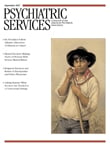Using Peer Counselors to Address Tobacco Use: the CHOICES Program
Although tobacco dependence is a proven major health issue, changes within the mental health system to increase treatment options have been slow to develop. Outreach to professionals has had limited success, as indicated by the continued low rates of diagnosis of nicotine dependence and treatment planning despite ten-year-old recommendations for psychiatrists to treat tobacco use among their patients. An alternative model for system change is to directly target smokers who have mental illness in order to increase the demand for tobacco cessation services among consumers. Here we describe the unique consumer-driven perspective of the CHOICES program for addressing tobacco use.
CHOICES stands for "consumers helping others improve their condition by ending smoking" and is a name that symbolizes empowerment and personal choice in recovery. CHOICES employs mental health peer counselors to deliver the vital message to smokers with mental illness that addressing tobacco use is important to their health and to motivate them to seek treatment. Advantages of using peer counselors include reduced language and cultural barriers, increased trust and lowered defenses, and low cost. Peer counselors often are rated highly by other consumers, and there is an added benefit in the modeling that comes from seeing peers do well.
Mental health peer counselors called "consumer tobacco advocates" serve as tobacco-focused consultants to consumers or agencies to assist with linkages to treatment, referrals, advocacy, support, and the provision of educational materials. Advocates must be nonsmokers or former smokers, and most work for the program part-time. The goal of the consumer tobacco advocate is not to provide direct tobacco treatment but to visit mental health centers, self-help centers, and health fairs to communicate with and educate consumers about their smoking. They also provide resources about places in New Jersey where smokers with mental illness can receive tobacco dependence treatment.
The consumer tobacco advocates for CHOICES participate in 30 hours of intensive training in order to learn how to discuss tobacco issues with peers and to organize activities such as health fairs and "smoke-out" cessation days. In addition they are instructed on how to perform a 20-minute peer-to-peer feedback intervention that was developed from the work of Marc Steinberg, Ph.D. This method is simple and straightforward and relies on the use of brief, personalized feedback about the impact of expired carbon monoxide from tobacco use and about the money spent on tobacco. Each CHOICES team member is provided with a small, handheld carbon monoxide meter, which is used in the feedback intervention. Each consumer tobacco advocate also receives ongoing supervision and feedback from the leadership team of two part-time mental health professionals.
The CHOICES program mails a free quarterly newsletter to consumers. Consumers are encouraged to submit articles and art to the newsletter, which also incorporates information on tobacco education and treatment options. Consumers need not to have quit smoking to write for the newsletter and often choose to write about their struggles with tobacco or other aspects of their recovery story. The CHOICES Web site (www.njchoices.org) was created as an additional tool to link consumers to available resources.
A program evaluation study that is under way tracks the activities and impact of the program. Since its inception two years ago, CHOICES has made more than 133 on-site visits to community sites, fostering interaction with more than 3,660 consumers who smoke. More than 530 smokers have received the individualized peer-to-peer feedback session, which includes a carbon monoxide reading. Feedback is positive from smokers, who report that consumer tobacco advocates are extremely knowledgeable about tobacco and interested in helping them to address their smoking. Seventy percent of those surveyed said it was a lot easier to talk to an advocate about their smoking than to their psychiatrist or mental health professional.
Successful partnerships have contributed to the rapid growth and success of CHOICES. The program is supported by grants from the American Legacy Foundation, the New Jersey State Division of Mental Health Services, and the Cancer Institute of New Jersey. The Mental Health Association in New Jersey, a consumer-driven mental health advocacy organization, has been an especially effective partner, linking CHOICES to an audience of consumers and sharing a commitment to addressing tobacco through policy and other work (www.mhanj.org/tobaccopolicypapernov2004.pdf).
The CHOICES program continues to accomplish its goal of using peer counselors to address tobacco use among mental health consumers by increasing awareness through targeted education, linking consumers to treatment services, and advocacy. Future goals are to continue to expand the program and develop satellite CHOICES organizations in other states.



